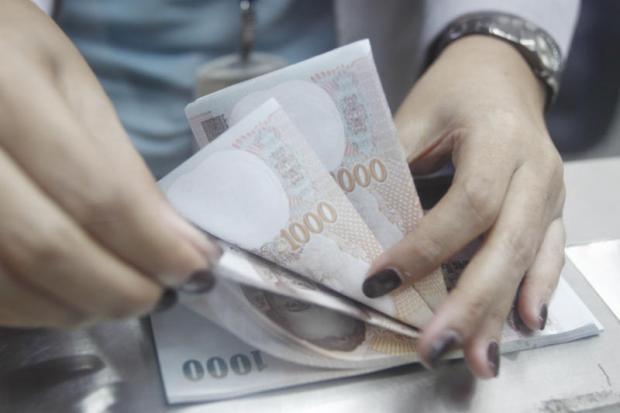Thailand: FPO asks BoT to drop interest rate
The Finance Ministry has urged the Bank of Thailand to slash the policy rate by 50 basis points to help stimulate the economy and curb speculative inflows.
Fiscal Policy Office deputy director-general Warotai Kosolpistkul said the ministry’s think tank also asked the central bank to abandon inflation-targeting as its monetary policy framework amid low inflation.
If the repurchase rate is kept unchanged at 1.5%, overseas funds will continue to flood into Thailand for arbitrage, he said.
Foreign investors may borrow from Japan, which has adopted a negative interest rate, to invest in Thai bonds and gain a profit from the stronger baht, said Mr Warotai.
Banks easily profit by taking deposits to invest in the repurchase market, earning an interest rate of 1.5%, which is exempt from withholding taxes, he said.
Earlier this month, permanent secretary for finance Somchai Sujjapongse also called for the Bank of Thailand to cut the policy rate while Mathee Supapongse, the deputy governor overseeing monetary stability at the central bank, has said cutting the rate could increase risks to financial stability amid the prolonged low-interest rate environment, as the interest rate’s effectiveness on accelerating inflation is limited.
The Bank of Thailand’s Monetary Policy Committee has left the policy rate unchanged at 1.5% since a cut in April 2015 due to uneven economic recovery. The MPC meeting on the interest rate is due on Wednesday.
The baht has gained more than 8% this year against the US dollar, making it Asia’s best performing currency, raising fears that the baht’s rise will take a toll on exports, which are gaining momentum.
Mr Warotai said the central bank’s inflation targeting, aimed at driving stable economic growth, is no longer effective, as seen by the fact that inflation is below the lower-end of the targeting band.
The central bank last year also failed to achieve the inflation target.
The Bank of Thailand has used a headline inflation target of 2.5% with a tolerance band of 1.5%.
“I’ve asked Bank of Thailand officials whether they still believe that inflation can really reflect economic condition, and they told me ‘yes’, but I say no, inflation is not the main target of monetary policy as it is pretty low, and I question why the central bank is not focused on GDP or consumption,” Mr Warotai said.
Even though the rate cut fuels inflation, he said people are not hurt by the cost of living if the inflation rate does not exceed 3% as food and energy — the items that most affect living costs — do not have sufficient thrust to create significant inflation this year.
He said that the central bank’s intervention in the foreign exchange market to slow down the baht’s gain is not the correct approach, as it is not possible to resist global financial forces.
The foreign exchange intervention needs to use mark-to-market accounting, which mires the central bank’s balance sheet in the red. Moreover, the Bank of Thailand must use tools to absorb the baht supply in the market, creating further costs, Mr Warotai said.
From the beginning of this year, the central bank has issued bonds worth less than 1 trillion baht to carry out sterilisation to neutralise the impact of the initial foreign exchange intervention, he said.
In the past the Bank of Thailand has issued as much as 2 trillion baht to absorb liquidity from the intervention.
With the fast-changing economy, the Bank of Thailand needs to adjust components in the inflation basket of goods, he said, adding that fossil fuels may be completely depleted and must be replaced by other types of energy in the future, making fuel a redundant measure of inflation.
Source: http://www.bangkokpost.com/business/finance/1330699/fpo-asks-bot-to-drop-interest-rate


 Thailand
Thailand




